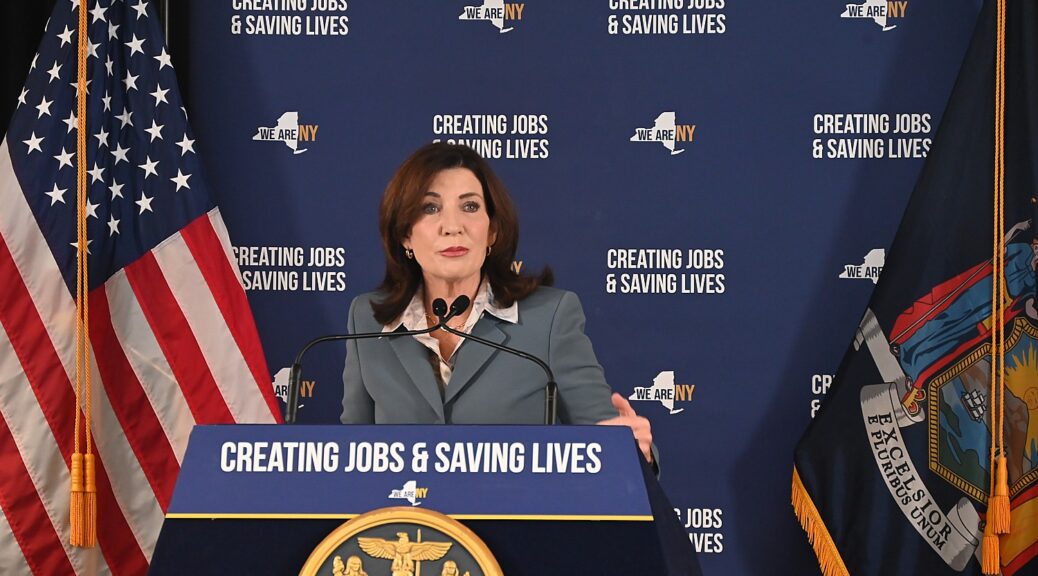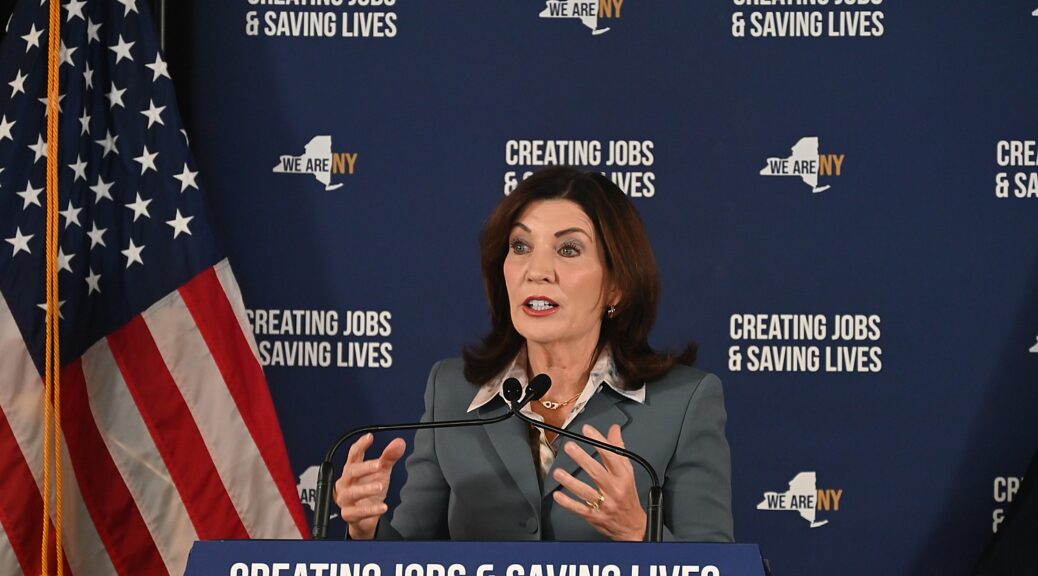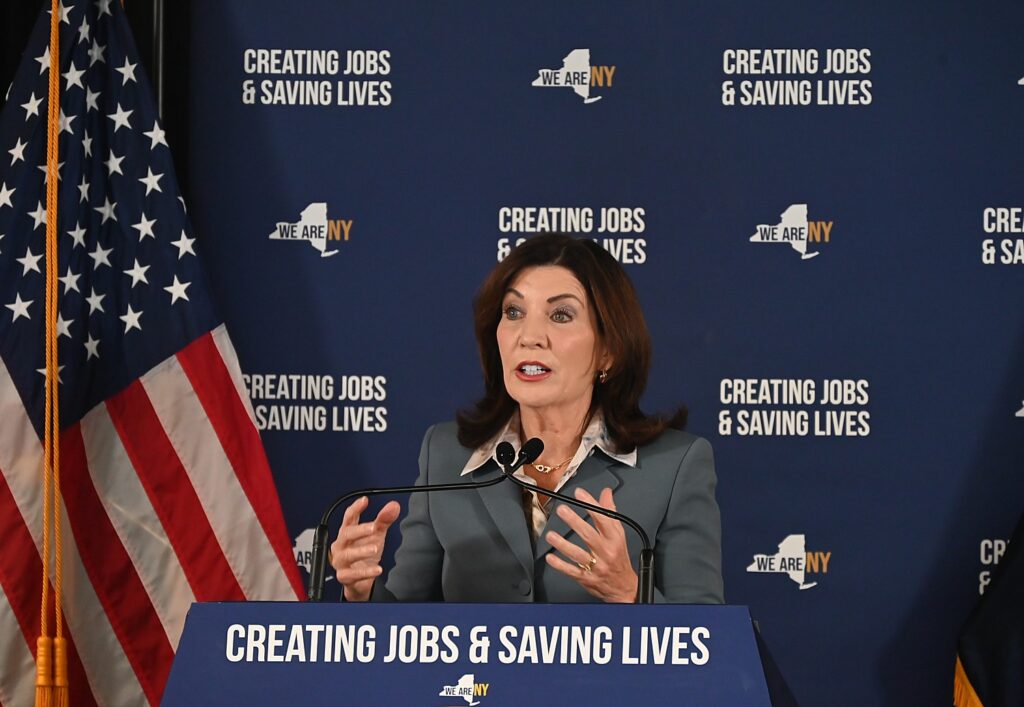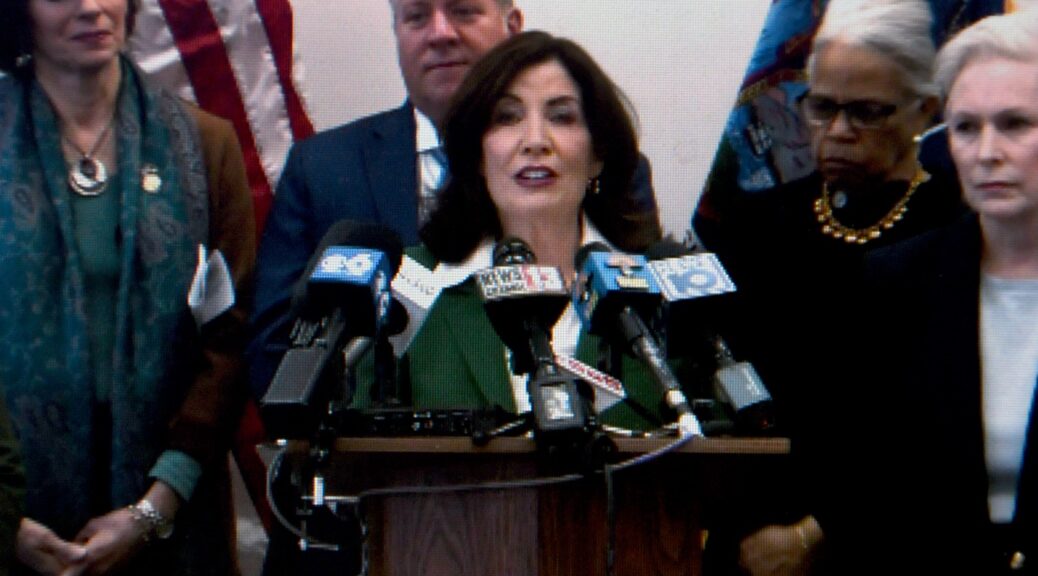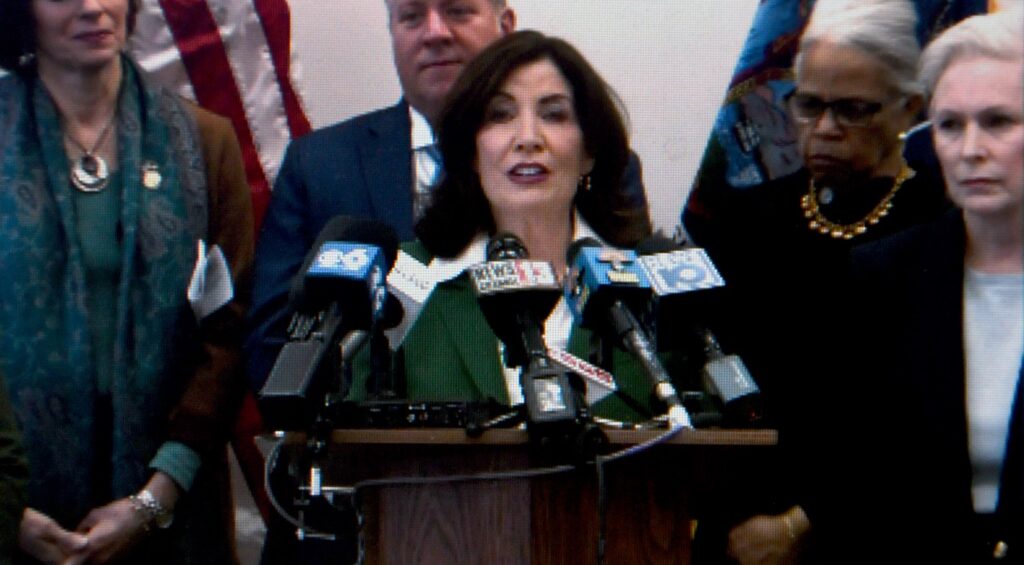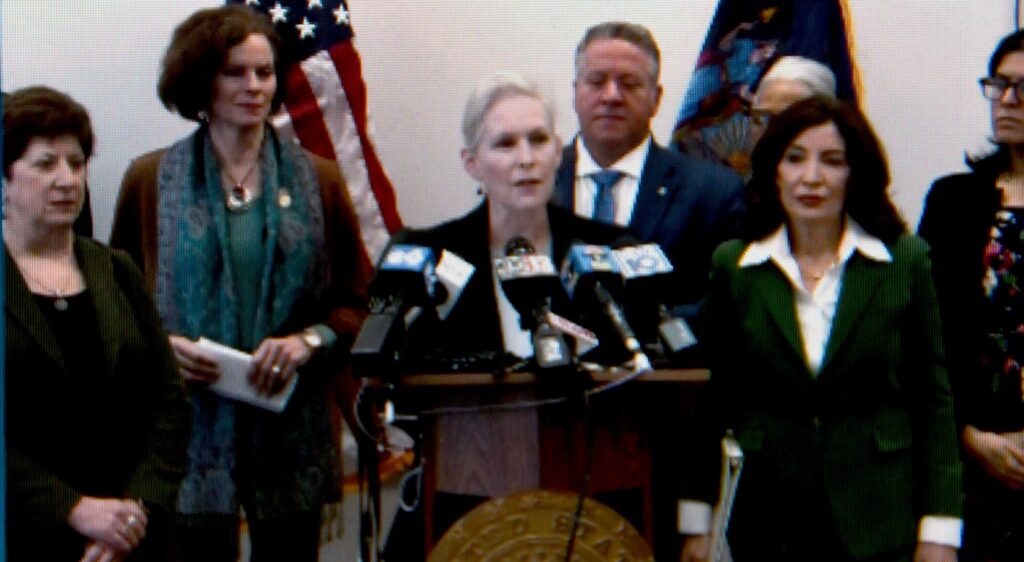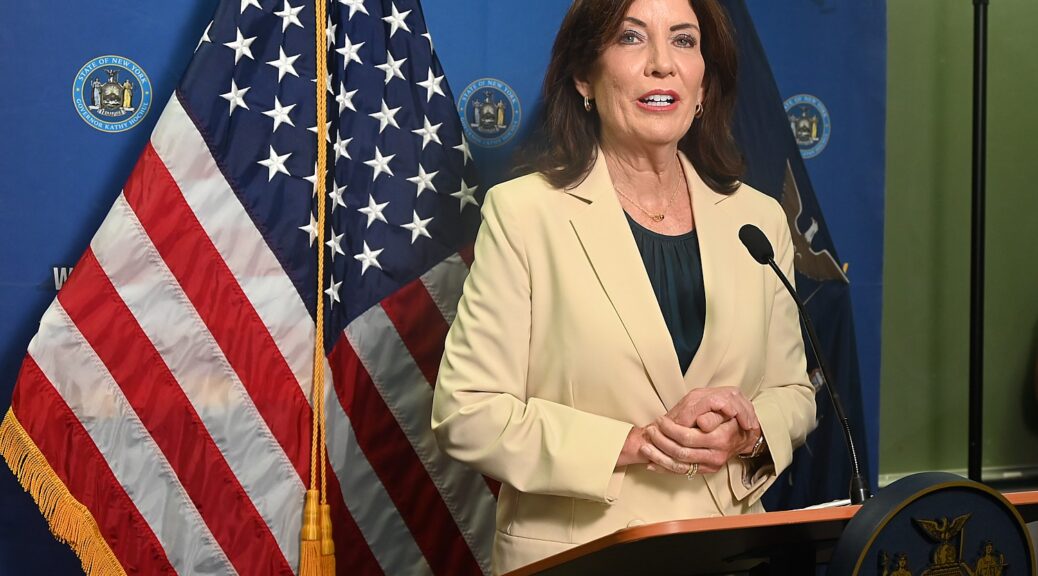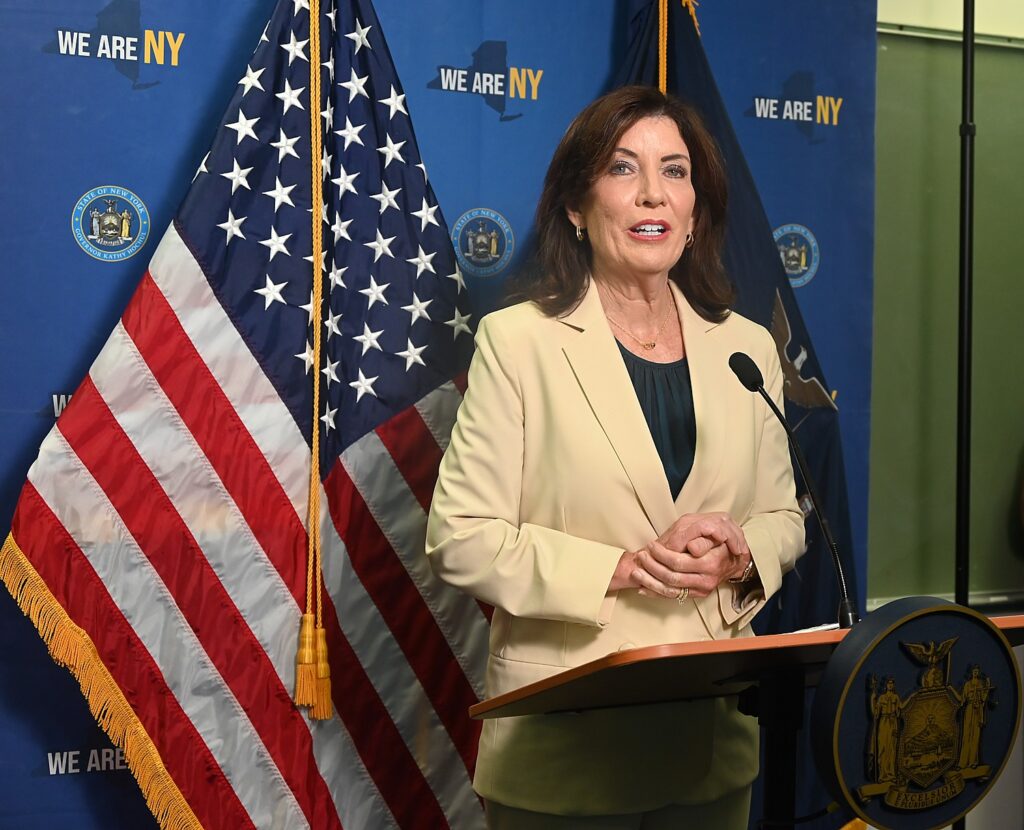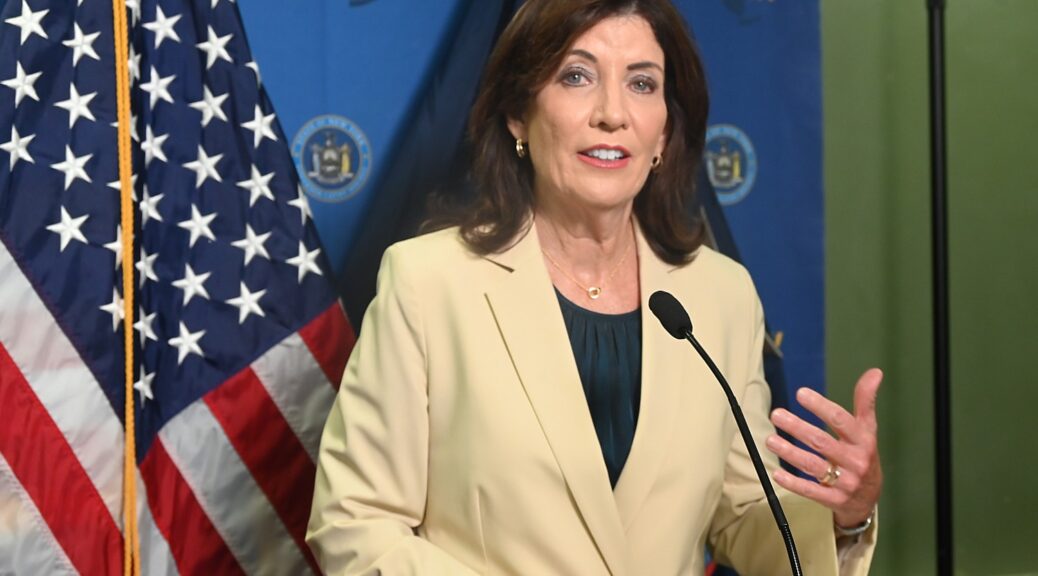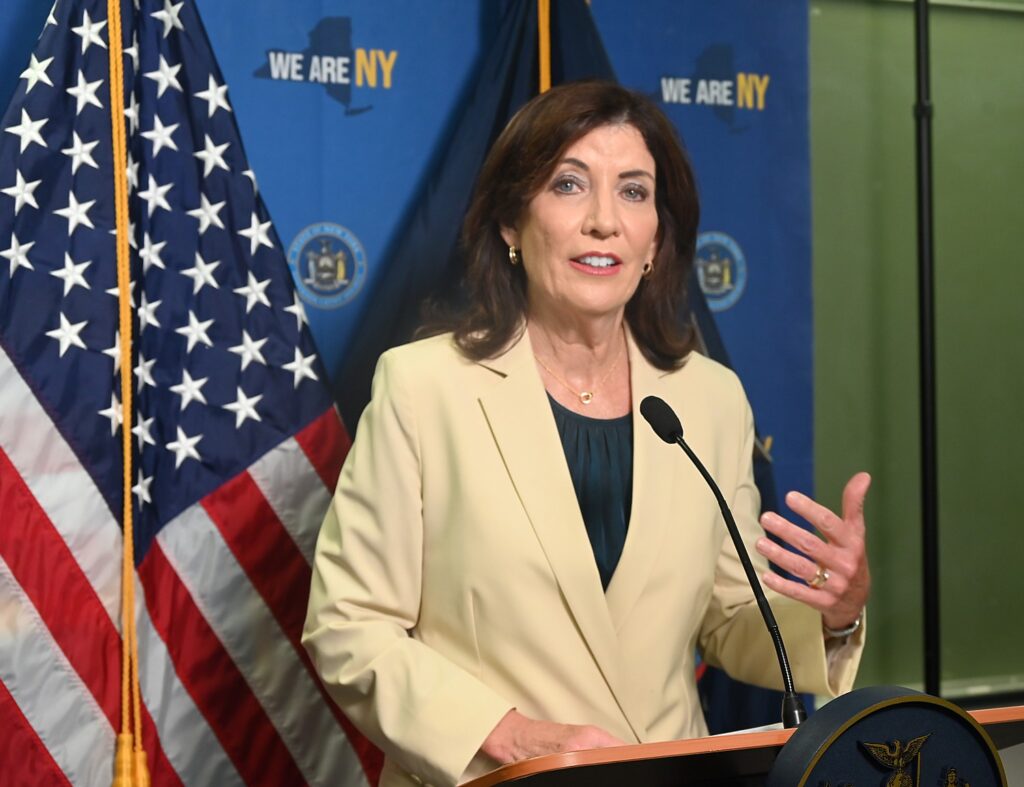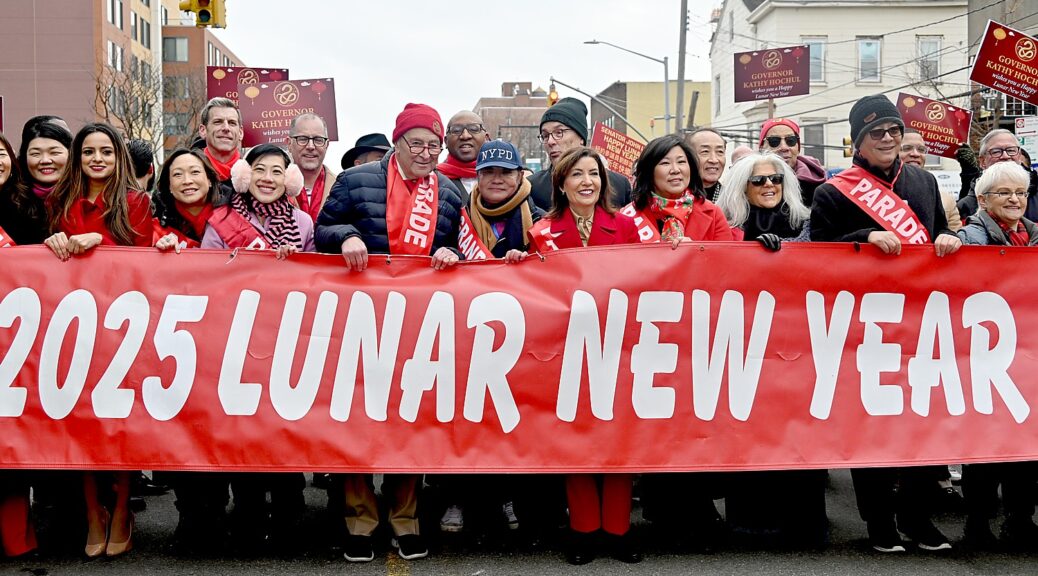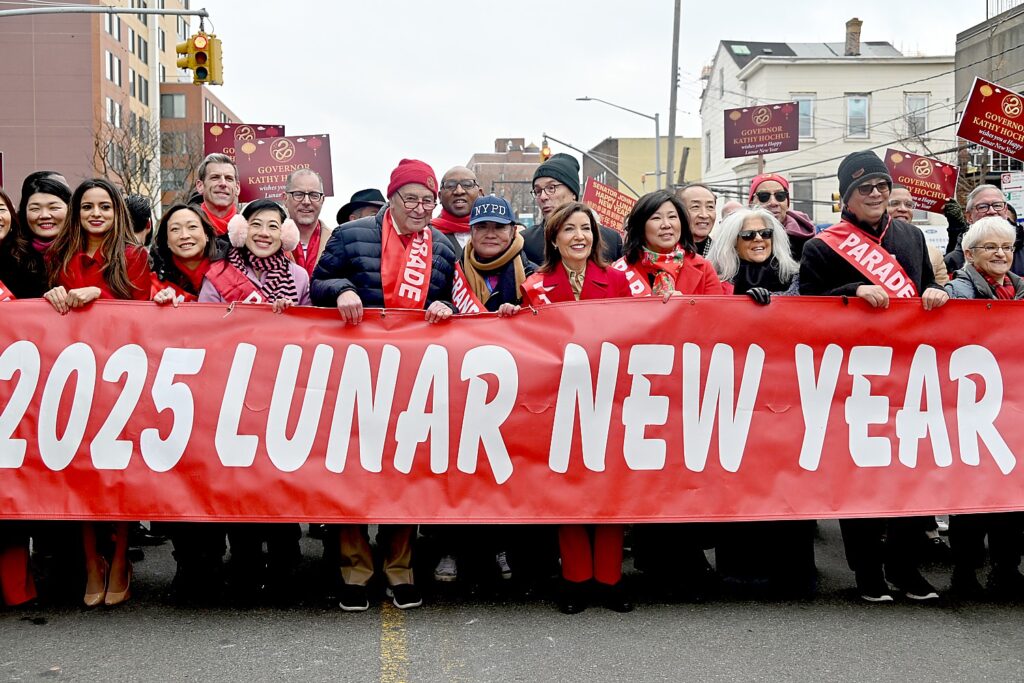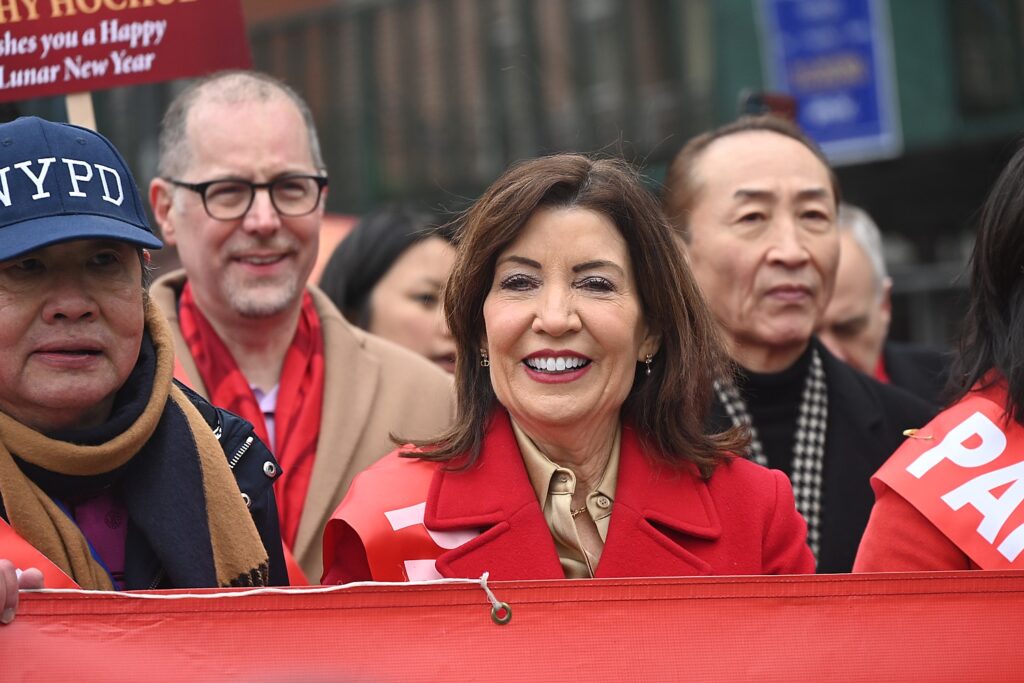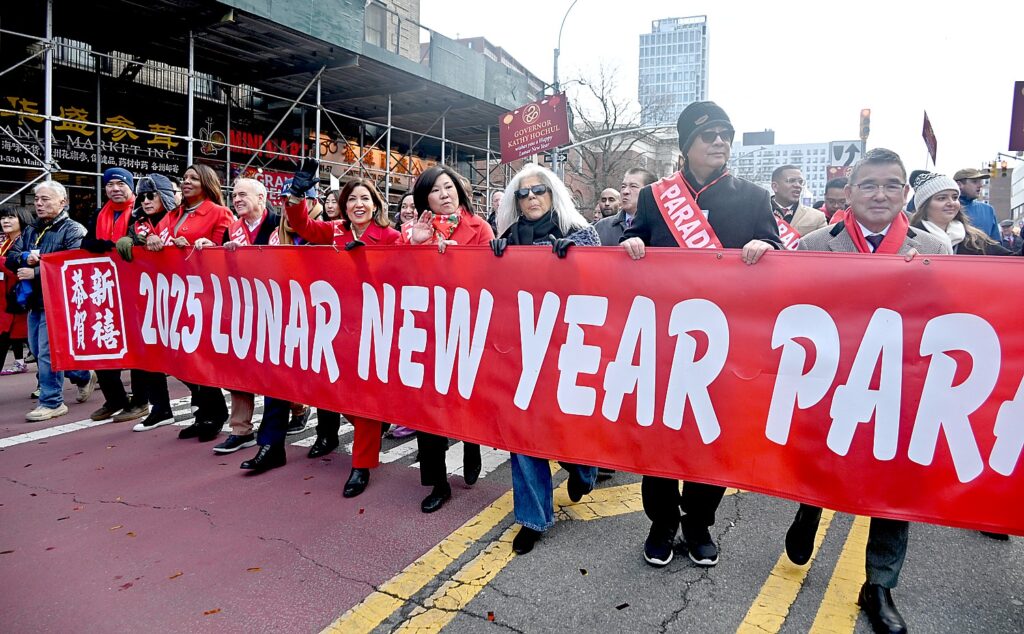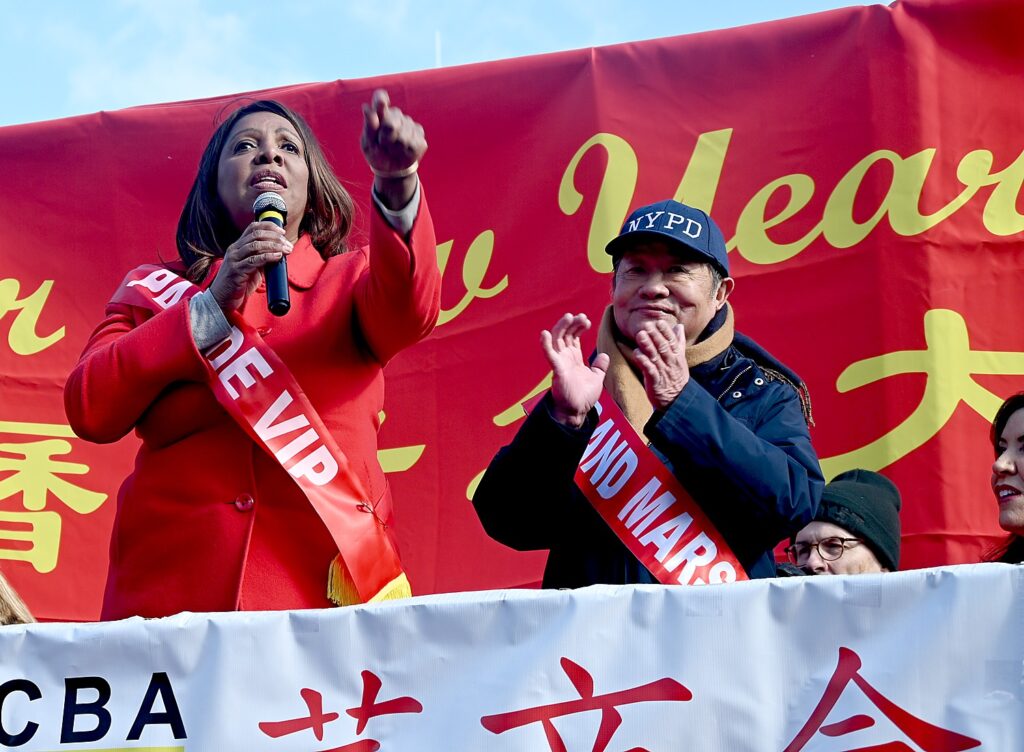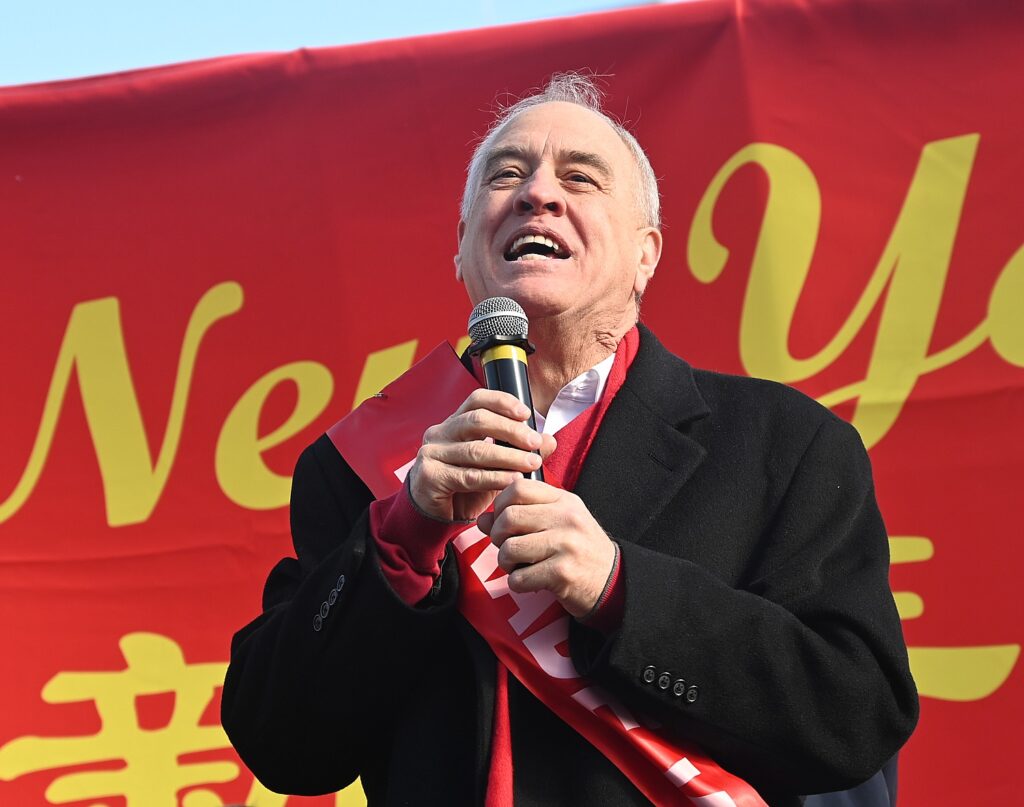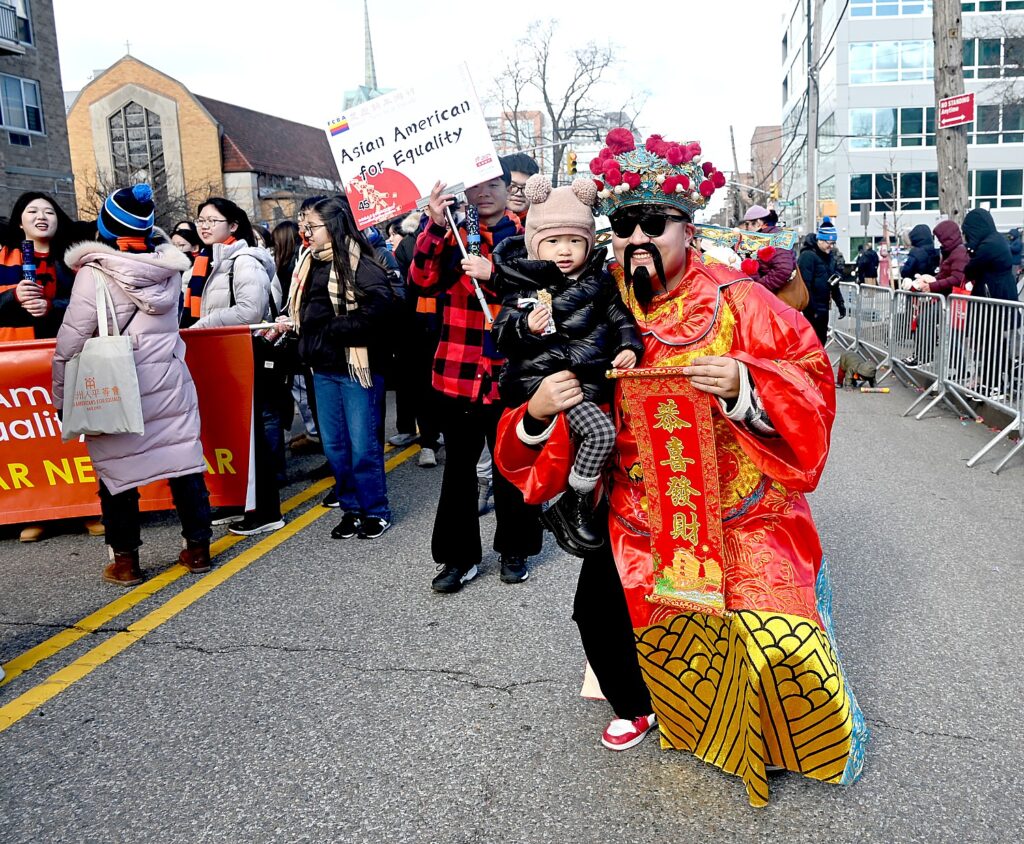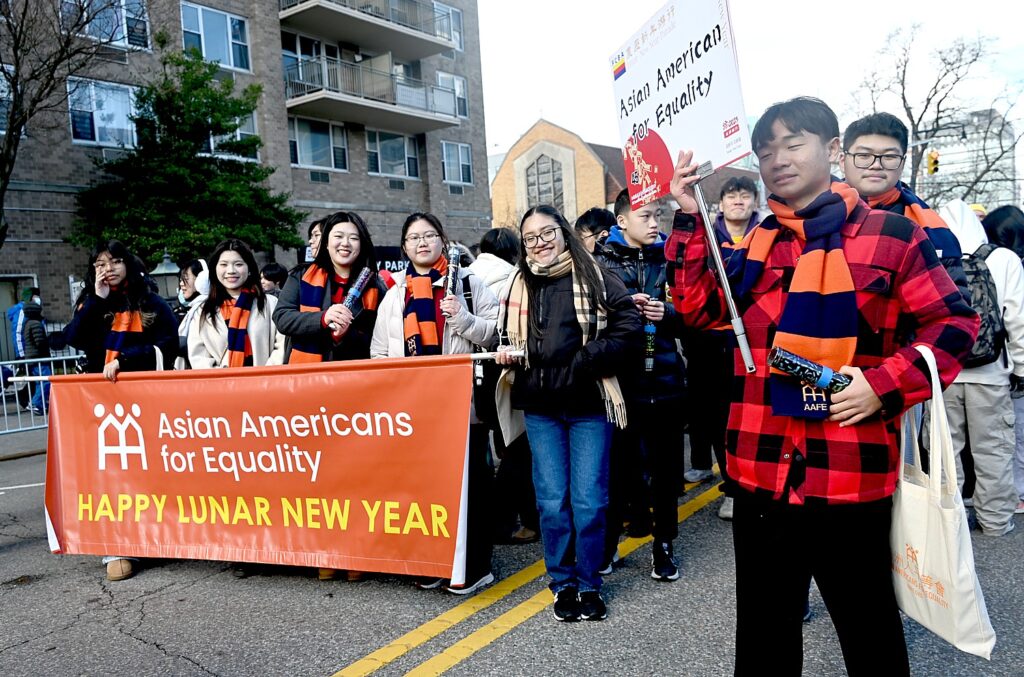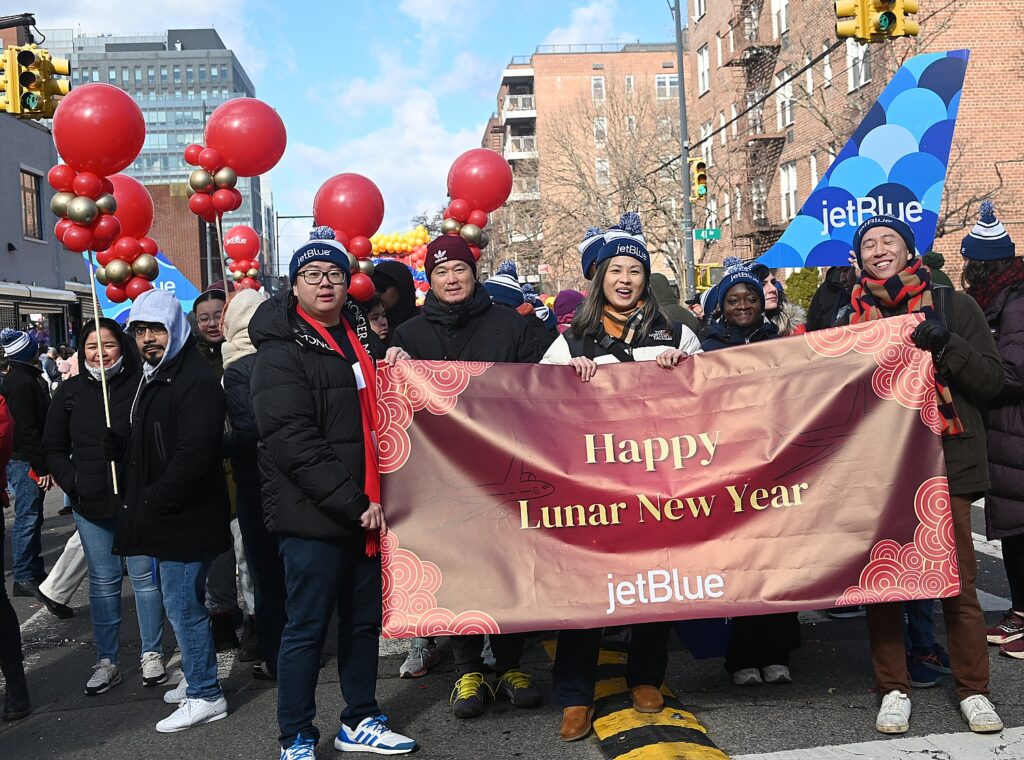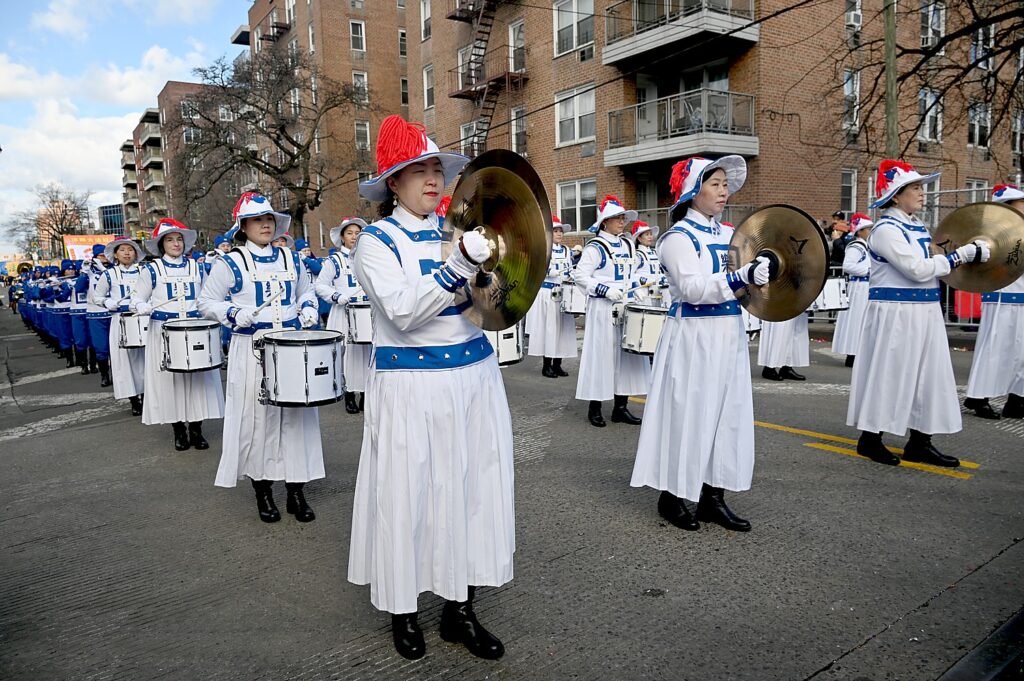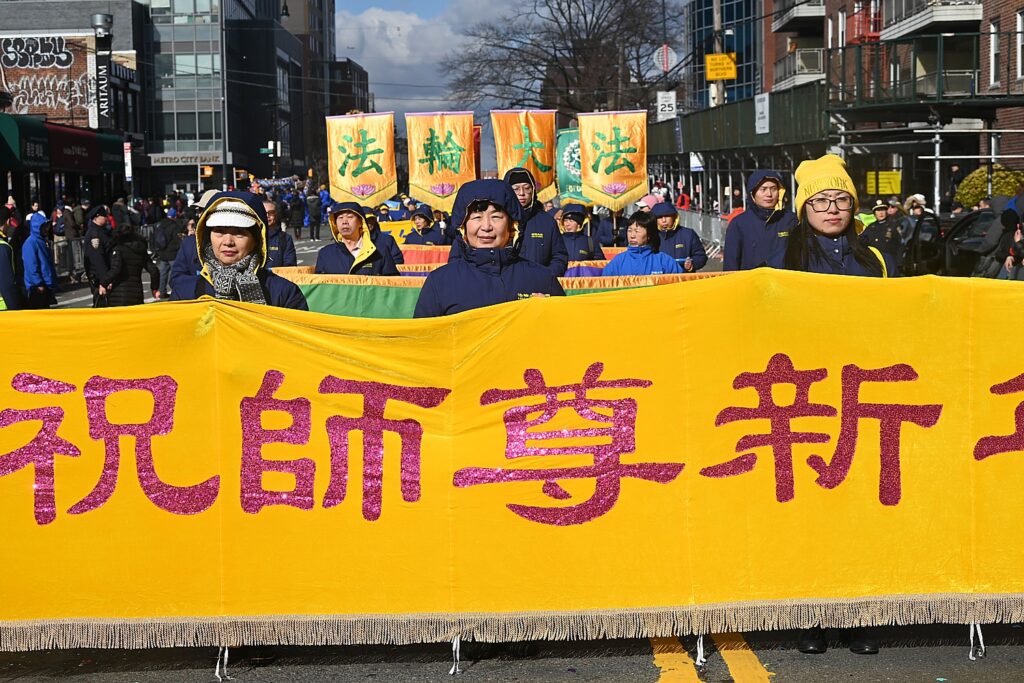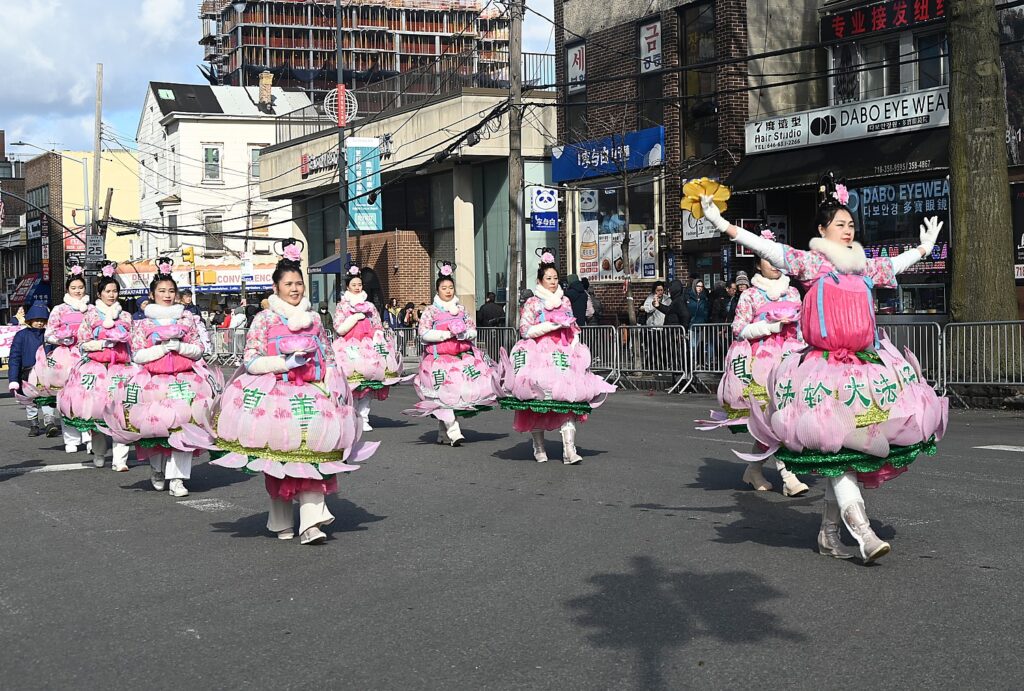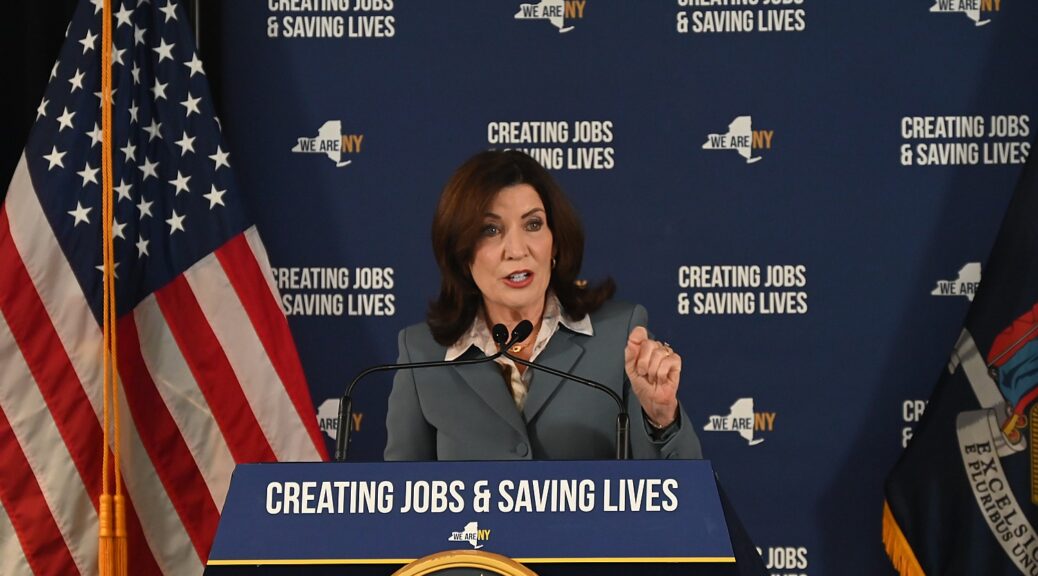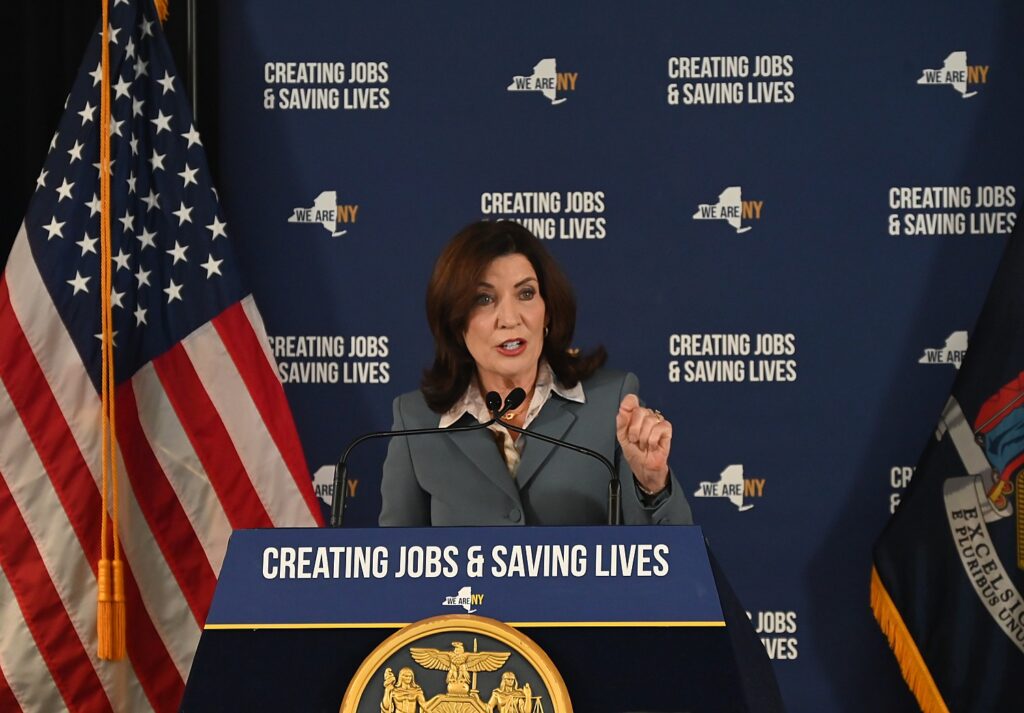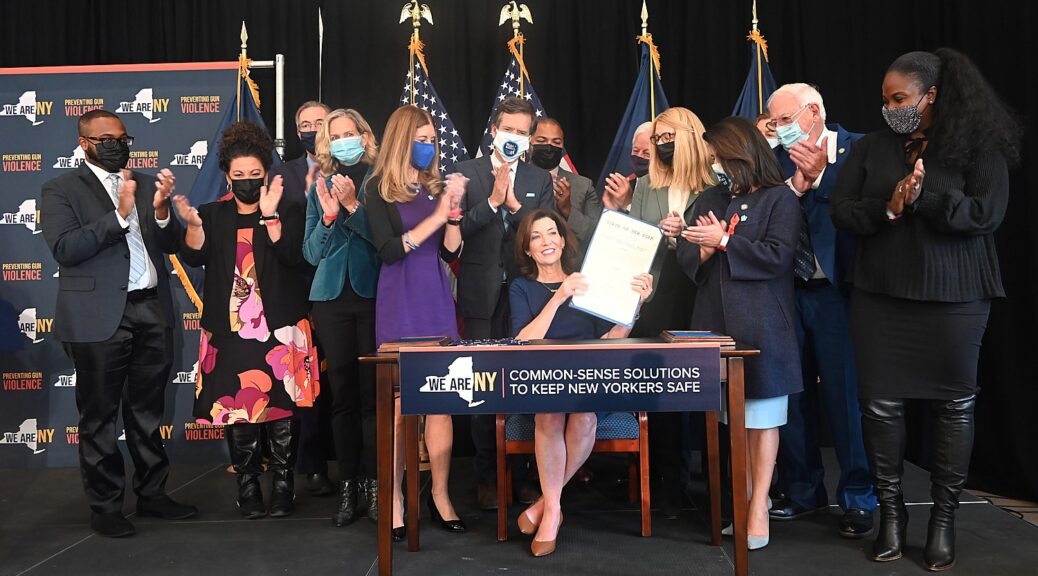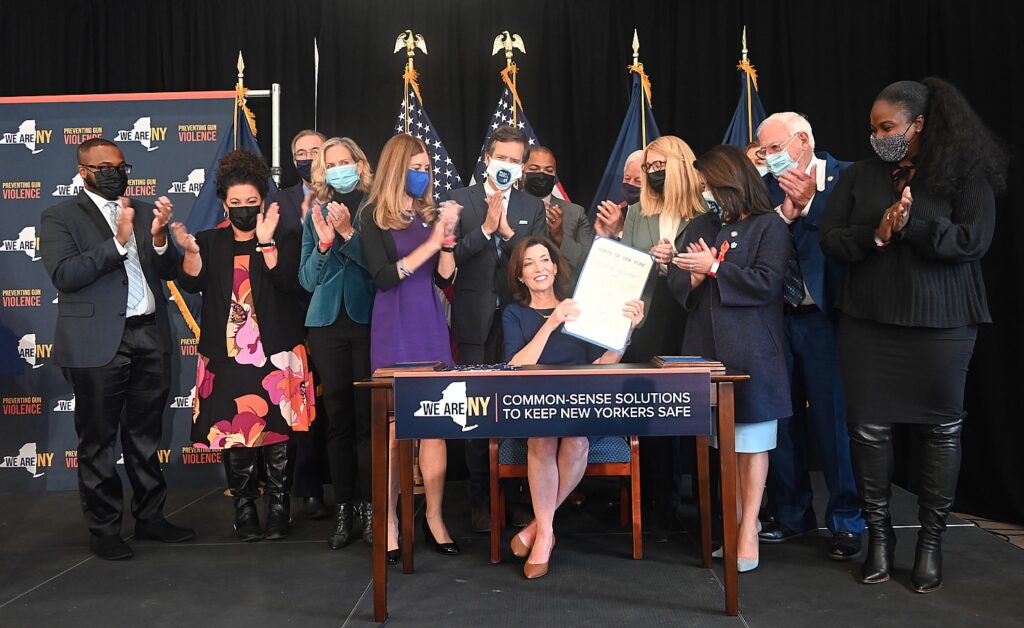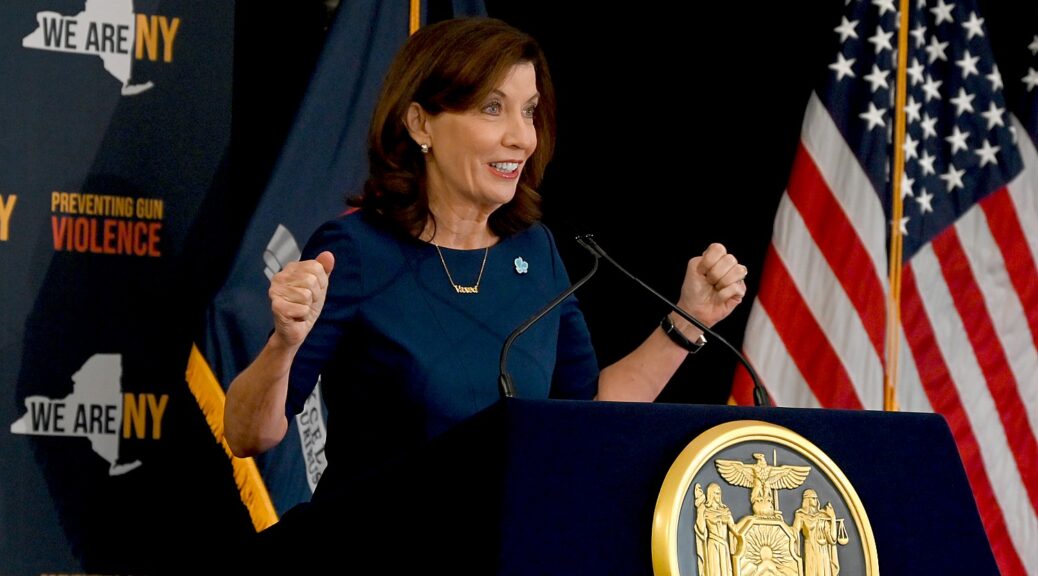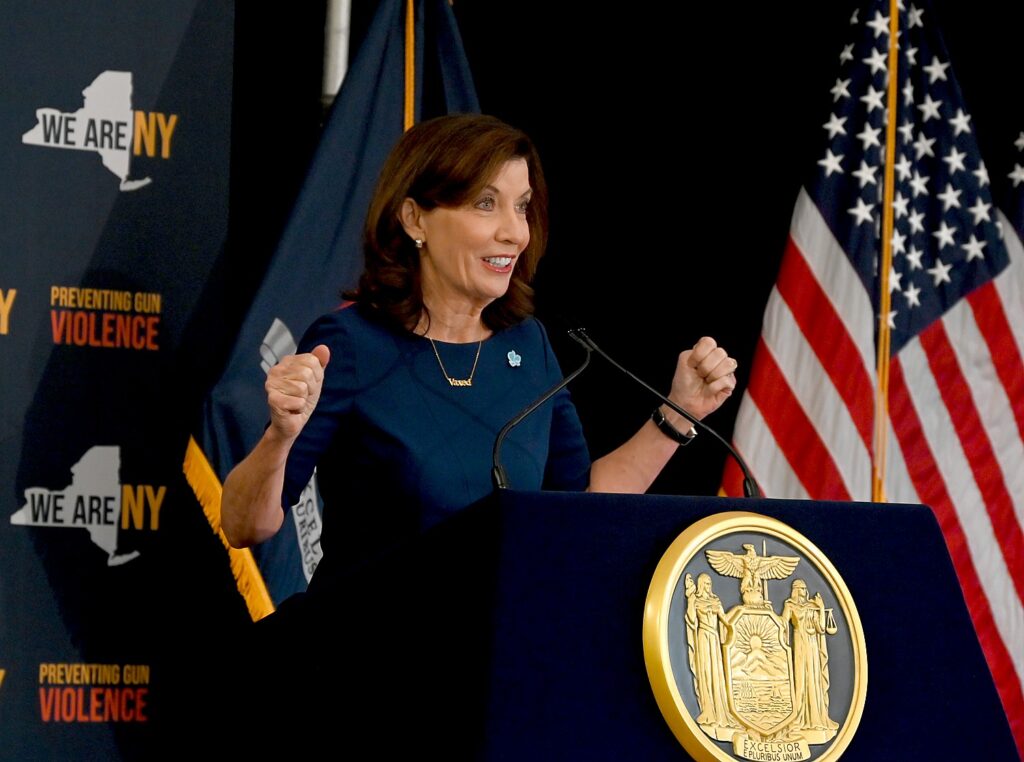Trump Administration Has Already Cut $1.3 Billion to State Programs, Threatened State Services
From Tariffs to Transportation, Trump’s Agenda is Harmful for Small Businesses, Industries, Tourism and Middle-Class New Yorkers
New York State Encourages Businesses Affected by Tariffs To Contact TariffImpact@esd.ny.gov To Report Impacts
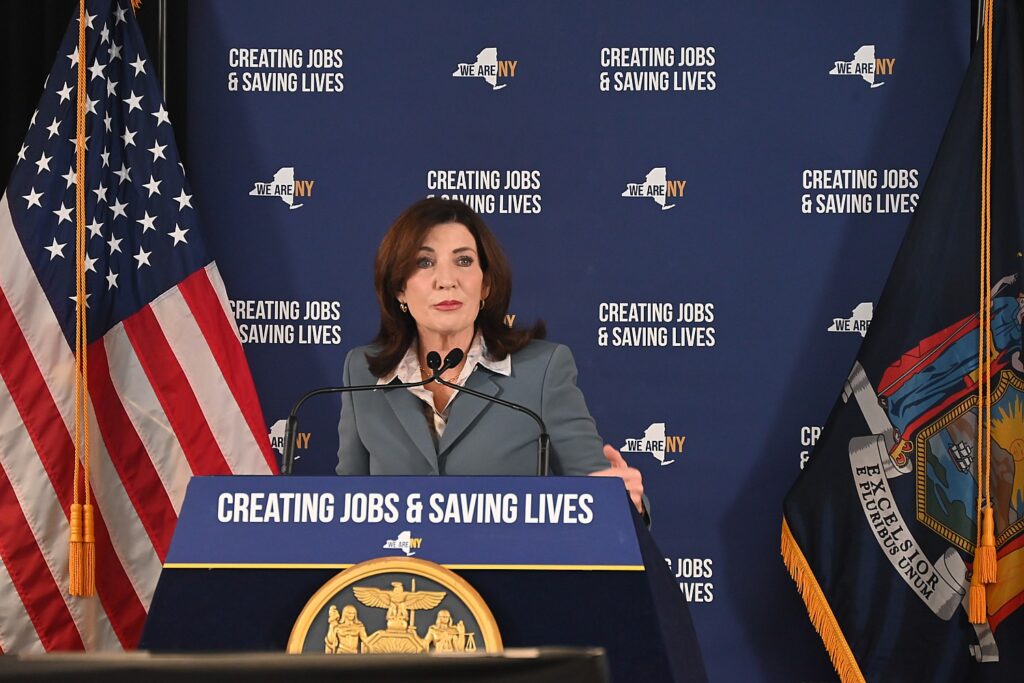
Governor Kathy Hochul today outlined the turmoil created under President Trump’s first 100 days in office, warning that his administration’s retaliatory policies, deep federal cuts and unilateral tariffs are poised to negatively impact New York’s economy, the environment and hard working families. Last week, New York State joined a multi-state lawsuit challenging the constitutionality of President Trump’s global tariffs. According to independent estimates, Trump’s tariffs will cost the State’s economy more than $7 billion, result in more than 280,000 jobs lost and hit New York families with an average cost increase of $6,400. New York has also led the fight to protect federal funding from cuts and disruptions that are impacting more than $1.3 billion in federal funding for New York and has successfully challenged in court the Trump Administration’s global funding freeze, as well as cuts to the National Institutes of Health, the Department of Health and Human Services, the Federal Emergency Management Agency and other critical federal agencies.
“The first 100 days of the Trump Administration have been rife with chaos and uncertainty, from on-again, off-again tariffs to cuts to vital programs, New Yorkers are paying the price,” Governor Hochul said. “President Trump promised relief from inflation and his policies are making life harder, chaotic and more expensive for working class New Yorkers while slashing the very services they rely on.”
Implications for New Yorkers during President Trump’s First 100 Days Include:
- More than $1.3 billion in cuts to funding for State programs so far with more expected, in addition to the funding cuts to local governments, universities and other organizations delivering critical services to New Yorkers
- Massive fluctuation in the stock market from ever changing tariff policies has shrunk 401(k)s and 529 college savings plans, and is expected to increase cost of living for New Yorkers by thousands of dollars
- Manufacturers and small businesses are reeling from severe cost hikes on some products due to tariffs, leading them to leave shipments in customs or cancel orders
- Canadian and European travel to New York has dropped and hotel stays and trips in regions such as the North Country and Western New York have been cancelled
- The pause of construction of Empire Wind, which will have a profound impact on jobs and energy production
- Cutting millions in funding that allows school districts and food banks to buy produce from local farmers who rely on their purchases
- Three Social Security Administration offices closed in New York
- Eliminated every person in the office that manages a program helping over 1 million New Yorkers pay their heating and cooling bills
- Cuts to the NIH paused the critical research of a New York Scientist on Alzheimer’s treatments
- Cut over $300 million in infrastructure funding for New York communities, threatening our public safety
- Cutting the majority of federal AmeriCorps funding in New York, which supports approximately 1,500 AmeriCorps members working for non-profits and in low-income communities across the State
PUBLIC SAFETY AND IMMIGRATION
The Trump administration has revoked more than $325 million in vital resiliency funding from the Building Resilient Infrastructure and Communities program and put $56 million more at risk, which will impact several critical infrastructure and community resilience projects in New York State.
Additionally, DOGE is planning to cut up to 84 percent of staff from their Office of Community Planning and Development, which helps pay to rebuild homes and other recovery efforts after the country’s worst disasters such as Superstorm Sandy and Tropical Storms Lee and Irene.
The Albany National Weather Service (NWS) Office was forced to suspend weather balloon launches due to staff shortages and budget constraints. This has impacted the ability of the NWS to provide twice-daily balloon launches, impacting the accuracy of weather forecasts.
After Immigration and Customs Enforcement (ICE) detained a Sackets Harbor mom and her children, Governor Hochul took action, engaging with the White House, Border Czar Tom Homan and local officials in an effort to bring the family back home. After 11 days in detention, the family was returned to Sackets Harbor.
ECONOMY AND TOURISM
The stock market has been unstable due to President Trump’s on-again, off-again tariff policy. This has caused retirees’ 401(k)s and students’ 529 savings plans to shrink. Additionally, consumer confidence plunged, to 50.8 percent in April from 71.7 percent in January. The dollar has weakened, falling to a three month low in April.
The Governor has heard from small and mid-sized businesses across the State who are worried about rising costs and their future. A recent survey from the National Small Business Association found that the majority of small businesses are concerned about tariffs and one in three are very concerned. Examples include North Country manufacturer Alcoa, which took an estimated $20 million hit on imports from Canada, and North Country Golf Club which is facing declines in businesses due to the decline in tourism from Canada. In the Southern Tier, the Cortland Standard, which was in business for more than a century, has closed its doors, citing the expected 25 percent tariffs on paper as part of the decision.
The Trump administration is cancelling the successful Manufacturers Extension Partnership (MEP) in several states. In New York, NY MEP centers generated $1.25 billion in economic impact, supported the creation or retention of nearly 6,300 jobs and served over 700 companies during the 2023 calendar year. This decision has raised widespread concern across the entire national network of MEP Centers, prompting fears about whether these initial cancellations are the first step in a broader effort to dismantle the program and eliminate federal funding for all 51 centers.
Due to the tariff trade war with Canada, New York’s number one trade partner, and the rhetoric that Canada could be the “51st state,” impacts are widespread. Visitors from Canada are avoiding the U.S. and New York State. Overall, total bridge crossings between Eastern Ontario and New York State for March are down 23,000 compared to 2024, and at the lowest level since 2022. Additionally, Niagara River bridges traffic for February is down 14 percent and Thousand Islands Bridge crossings are down 19 percent.
A survey of local businesses in the North Country found that 66 percent have already experienced a slight to significant decrease in Canadian bookings for 2025, and that 26 percent have already adjusted staffing levels in response to the decline.
TRANSPORTATION
President Trump’s Department of Transportation vowed to kill congestion pricing from day one of his administration, despite clear evidence that the program is working. The MTA reported that in March, traffic is down 13 percent, travel times have improved in key corridors within the Central Business District and it has increased revenue for the MTA that will result in improvements in the system.
IMPACTS ON HARD WORKING FAMILIES
President Trump has reduced the federal workforce by more than 120,000 people nationwide according to data compiled from CNN. In New York more than 1,200 federal workers have been forced to file for unemployment.
The Trump administration has pledged to cancel the successful and free Direct File tax filing program. This program has already begun to make an impact in its first full year, with many New Yorkers saving nearly $300 per household in tax prep fees that could instead go toward groceries, gas, child care or rent.
The U.S. Department of Agriculture slashed hundreds of millions of dollars in funding that helped schools buy food from local farms. The program sought to bring local produce to schools and child care facilities, giving schools the opportunities to purchase fresh foods and use smaller producers rather than rely on large corporations.
The Trump Administration announced that half of all food shipments through The Emergency Food Assistance Program (TEFAP) would be canceled, resulting in a $500 million reduction in funding for food banks across the country. New York State could see a loss of around 16 million pounds of USDA foods in 2025 due to the TEFAP funding cuts, according to Feeding New York State.
SSA field offices are closing, wait times for deserving seniors are increasing and sensitive and private personal data is in danger of being insecure.
ENERGY
The Trump Administration stopped construction on Empire Wind, putting thousands of construction jobs at risk and threatening to dismantle a project that when complete, will generate enough electricity to power about 500,000 homes in New York State.
Funding has been suspended for the National Electric Vehicle Infrastructure (NEVI) Formula Funds. The NEVI program — passed as part of the Bipartisan Infrastructure Law — provides funding directly to states for installing public electric vehicle (EV) charging stations, which, if implemented, will lower fuel costs for families, reduce U.S. dependence on fossil fuels and create construction jobs nationwide.
President Trump has also threatened to roll back the Inflation Reduction Act (IRA) and repeal its tax credits. NYSERDA estimates a full repeal of the clean energy incentives could result in more than $20 billion in increased project costs and could cause significant project attrition.
HOUSING
At the direction of President Trump and DOGE, HUD staff has been decimated, imperiling the core functions of the agency that serve our communities, manage federally funded housing programs and assist housing development at a time of national crisis for housing. Funding has also been cut for organizations that fight housing discrimination across the country, while rolling back federal protections to Affirmatively Further Fair Housing.
HUD has further announced it was ending four years early the Emergency Housing Voucher Program, a successful federal program to combat homelessness for more than 9,500 households across the State. The federal administration imperiling this funding will force these families, at last stably housed, back onto the street.
The $1 billion Green and Resilient Retrofit Program that helps preserve affordable housing is being paused, threatening projects that keep tens of thousands of units livable for low-income Americans.
HEALTH CARE
The actions of the current administration threaten the health and safety of New Yorkers. New York State remains steadfast in its commitment to safeguarding the health and well-being of all New Yorkers and promoting health equity.
President Trump has endorsed the House’s budget resolution which includes over $1 trillion in cuts to critical safety net programs like Medicaid and SNAP. Nearly 7 million qualifying New Yorkers are covered under Medicaid, including 2.5 million children, and 636,000 New Yorkers with disabilities. 2.9 million New Yorkers rely on SNAP for healthy food, including over 800,000 children.
The Trump administration’s National Institute of Health (NIH) has cut grant funding to SUNY used to conduct research to cure diseases, keep our nation safe and grow our economy. The NIH’s sudden budget cuts will cost SUNY research an estimated $79 million on current grants, including more than $21 million over just the next five months that will immediately imperil the work of SUNY’s dedicated researchers by decimating the equipment, staff and services they rely on.
The Trump Administration picked a top health official who has questioned the safety of vaccines and the use of fluoride in drinking water and claimed that autism was preventable. These views go against proven science and could lead to more diseases by making people doubt public health advice.
The Administration has taken back important public health funding. This includes money for tracking disease, supporting vaccinations and helping vulnerable communities hit hardest by the pandemic. Without this funding, local health services must cut staff and scale back programs, especially in areas that need the most help.
Hundreds of federal health workers have lost jobs, making it harder for both the federal government and states like New York to respond to health threats and deliver services like maternal care and disease control.
New executive orders have removed federal support for diversity, equity and inclusion programs, harming efforts to ensure fair health care for women, LGBTQ+ people and communities of color. These actions affirm that the needs of these communities no longer matter to the federal government.
In addition, with massive arbitrary cuts to federal agencies, the future of federal programs to help combat substance use disorder, heating and cooling assistance for low-income New Yorkers, and early childhood investment programs like Head Start remain in jeopardy.
New York State remains committed to ensuring all New Yorkers have access to affordable, quality health care. Accordingly, the State rejects thinly veiled attacks on anyone who may not comport with the Trump Administration’s limited views of who is a person.
EDUCATION
President Trump vowed to eliminate the Department of Education, a crucial part of the federal government that supports kids, teachers and administrators right here in New York State. New York receives $5.5 billion annually from the Department of Education. Approximately $3.2 billion is routed through the State Budget and $2.3 billion is sent directly to local entities, primarily colleges and universities. This crucial funding supports Pell Grants for college students, money for kids with disabilities, programs that are supporting kids’ mental health, crucial research at our public higher education institutions and much more
ENVIRONMENT & AGRICULTURE
The Trump administration has taken aim through Executive Order at dismantling New York State’s strong environmental protections.
Additionally, funding for the Local Food Purchasing Assistance Program has been slashed. While the Biden administration had indicated that $24 million would be available under the LFPA program (New York Food for New York Families), the Trump administration (USDA) has reversed and this next round of funding will no longer be available.
More recently, New York State’s $60 million award for the New York Connects: Climate Smart Farms and Forests Program, which funds climate smart agriculture and forestry practices, was cancelled by USDA.
USDA staff that assist farmers with implementing conservation programs, loans and other resources for their farms, have been laid off.
Over 80 percent of agrochemical imports and 70 percent of farm machinery imports come from countries facing tariffs of 10 percent or more. Tariffs may slow down or halt on-farm expansion and modernization due to projected increases in equipment costs, with much of the stainless steel coming from abroad.
Trade issues are having a compounding effect for dairy farmers — input costs are going up and the milk price relies on export markets. Tariffs and threats of trade disputes result in lost markets and lower milk prices. For example, the budget for a building project went from $85,000 to $106,000, due to tariffs on steel and aluminum, one farm had a $2,200 fee added to their bill for grain because it came from a Canadian feed mill and another farm is anticipating their bottom line to be 7-10 percent lower this year due to lower milk prices and tariffs on inputs, including feed, energy and building supplies.
The ability of West Coast apple producers to export their product will play a key role in the price and demand for New York apples. If West Coast producers are not able to expand overseas markets, they will continue to flood East Coast markets and displace New York State fresh apples where they can undercut prices.
Tariffs placed on equipment, largely coming from Canada, would increase producers’ costs of maple syrup production significantly and negatively impact profitability in the maple industry.

